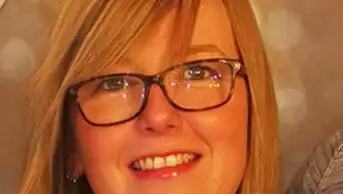
Brina Bharkhada
My role as a specialist multiple sclerosis (MS) pharmacist fits into the expanding MS service at the National Hospital for Neurology and Neurosurgery (NHNN) in London.
My work involves developing treatment pathways for emerging drugs, ensuring safe and effective prescribing, and providing essential medicines information for people with MS. I work closely with the principal pharmacist for MS and together we support the multidisciplinary team with day-to-day management of the service, ensuring the delivery of safe, clinically effective and cost-effective pharmaceutical care for MS patients.
08:30 — start
I start the day, coffee in hand, responding to emails and making a plan for the day. It has been a busy year as the hospital has had to cope with a surge in COVID-19 patients, while continuing to provide specialist services for patients with neurological conditions, including MS. I am helping to cover a clinic this morning as some of our MS clinical nurse specialists have been redeployed, so I cast an eye over the patient list to familiarise myself with their medical history and treatment recommendations.
09:00
My first patient is a young female in her 30s who has been referred by her neurologist to start ocrelizumab for the treatment of their relapsing remitting MS (RRMS). During the hour-long drug education and screening phone consultation, I explain the treatment pathway, how the drug works, any side effects and the monitoring process. The second part of the appointment focuses on the patient’s health screen; we discuss her history of MS, employment background, lifestyle and vaccination history. I also use the time to explain the additional services that are available to them at the NHNN, such as fatigue management and neuropsychology.
The patient has a lot of questions about future family planning, as well as her risk of infection during the COVID-19 pandemic. Ocrelizumab is a monoclonal antibody that targets the CD20 antigen on B cells. In MS, it works by suppressing the immune system to reduce inflammation; however, it also reduces humoral immunity, and moderately increases the patient’s risk of bacterial and viral infection. The patient is keen to get started on ocrelizumab so we plan out the blood tests and investigations she will need to get the ball rolling.
10:00
My second patient has been referred by their neurologist to start treatment with cladribine. In contrast to ocrelizumab, which is a six-monthly intravenous infusion, cladribine is an oral tablet that can be taken at home. The dose prescribed is based on the patient’s weight, and comprises 2 treatment weeks, in week 1 and 5, of 4 or 5 days’ oral therapy, over 2 consecutive years (a total of 20 treatment days over 2 years).
This particular patient has been referred for treatment escalation as they had a relapse on their current treatment, dimethyl fumarate, and new lesions were identified on their most recent brain MRI scan.
11:00
I spend time writing clinic letters, and ordering and chasing blood test results and investigations; patients normally require baseline blood tests, including a full blood count and differential renal and liver function tests, as well as a full viral screen (hepatitis B and C, tuberculosis, HIV and varicella-zoster virus). We also check that each patient is up to date with the national cancer screening programmes, such as cervical smear tests, as well as vaccines, including the COVID-19 vaccine. There are specific investigations we undertake, depending on the medication we initiate; these might include an immunoglobulin screen, electrocardiogram, John Cunningham virus antibody test, genotype testing for CYP2C9 and lumbar puncture.
11.30
I receive a query from one of the MS clinical nurse specialists (CNS) regarding a patient on ocrelizumab treatment who has been contacted by their GP surgery to have the shingles vaccine. We generally advise patients with MS to avoid live vaccines if possible, as it can precipitate a relapse. Additionally, patients taking a disease-modifying therapy (DMT) have a suppressed immune system; therefore, live vaccines are contraindicated because, although the vaccine’s ability to cause disease has been weakened, it is not totally inactivated. Our role is to weigh up the risks and benefits, and discuss with the consultant and virology team to decide if the vaccine is appropriate.
11.45
The majority of the medicines we provide for MS patients are supplied through homecare; they are prescribed by the consultant and then checked by a pharmacist, before being sent to the homecare company for delivery to the patient. When we screen the prescription, we check that the correct medication, dose and frequency is prescribed, and also that the patient has had blood test results that fall within an acceptable range in the required time frame. We have approximately 1,600 patients who receive supply of their MS medications through homecare, so we spend quite a bit of time screening these prescriptions. If their blood tests have expired, we will not supply the next prescription: ‘No bloods, no drugs’.
12:45
We are currently updating the clinical guidelines for each of the DMTs we prescribe at Queen Square MS Centre, so I spend some time working on the guideline for dimethyl fumarate for the treatment of RRMS; there has been a recent safety update from the Medicines and Healthcare products Regulatory Agency regarding lymphopenia and risk of progressive multifocal leukoencephalopathy, so we have had to amend the blood monitoring protocol.
13:45
I give myself a break from the screen; usually, I catch up with a colleague over lunch or take a walk to get some fresh air.
14:15
A large part of our role as MS pharmacists is to safety check the prescriptions for patients coming in for their MS infusions — these include natalizumab, ocrelizumab and alemtuzumab. Each medication has a different pharmacy checklist that we use for screening the prescription, and if the patient has any abnormal blood tests or investigations we will often liaise with other specialties, such as haematology, gynaecology, virology and hepatology, to ensure the patient can go ahead with treatment. We screen the infusions in advance to ensure that any problems or issues are smoothed out before the patient arrives.
15:00
Every fortnight we have an MS DMT multidisciplinary team (MDT) meeting with all of our MS consultants, MS pharmacists and MS CNSs to discuss and confirm the eligibility and suitability of patients starting or switching treatment. To be considered eligible, patients must fulfil criteria set by NHS England; however, we often have challenges regarding the suitability of treatment for a patient. For example, some women of childbearing age may prefer to opt for a treatment that is highly effective and does not have a long washout period before pregnancy, but in some cases they do not fulfil the NHS England criteria and are therefore not considered eligible for such treatment. I find the DMT MDTs really interesting; we often discuss complex cases and it’s a good learning opportunity for me.
16:00
I am contacted by a consultant who would like a patient, who is struggling to walk following a relapse, to be started on high-dose oral steroids as soon as possible. High-dose steroids are used to treat relapses; however, the risks and benefits have to be carefully considered before they can be prescribed. I screen the prescription and ask our dispensary team to post the medication to the patient. During the COVID-19 pandemic, our dispensary team has set up a medication posting service to reduce patient footfall in the hospital, which has worked well with telephone clinics and is likely to continue post-COVID-19.
16:15
Another aspect of our role as MS pharmacists is to monitor patients who have out-of-range blood test results. For several of our DMTs, we have to carefully monitor lymphocyte levels in patients, which can become low during treatment. If a patient becomes lymphopenic, they are at risk of opportunistic infections, including progressive multifocal leukoencephalopathy. We have individual protocols for each medication, so lymphopenic patients are referred to us, either by the MS consultant or MS CNS, for monitoring.
Another patient cohort we monitor are those who are switching treatment as this has to be timed precisely. Several of the DMTs require a washout period before another DMT can be initiated to prevent crossover immunosuppression; we normally monitor lymphocyte levels to gauge when it is safe to start another DMT. However, for some DMTs, such as fingolimod and natalizumab, it is important we do not keep the patient off treatment for too long during the washout period as it can cause a catastrophic rebound relapse.
17:30 — finish
It’s the end of the day and I have a final look at any email queries that may have come through, before heading home.
Box: Are you interested in a similar role?
- Immerse yourself within the multidisciplinary team; you can learn so much from other members of the team. However, always remember that you are the pharmacist.
- Don’t be afraid to ask questions — it is the best way to learn.
- Attending learning events, such as virtual workshops and educational meetings, is a great way to learn more about different specialties within neurology, and it is also a great opportunity to network.
- Embrace your inner geek and subscribe to journals (I recommend Neurology and MS Journal) — a lot of neurology is evidence-based but also experimental, so there are always advancements in treatments on the horizon.
- For interviews, remember it is not what you know, but how you would find the answer or resolve the problem. Be innovative, think outside the box and show your passion.


